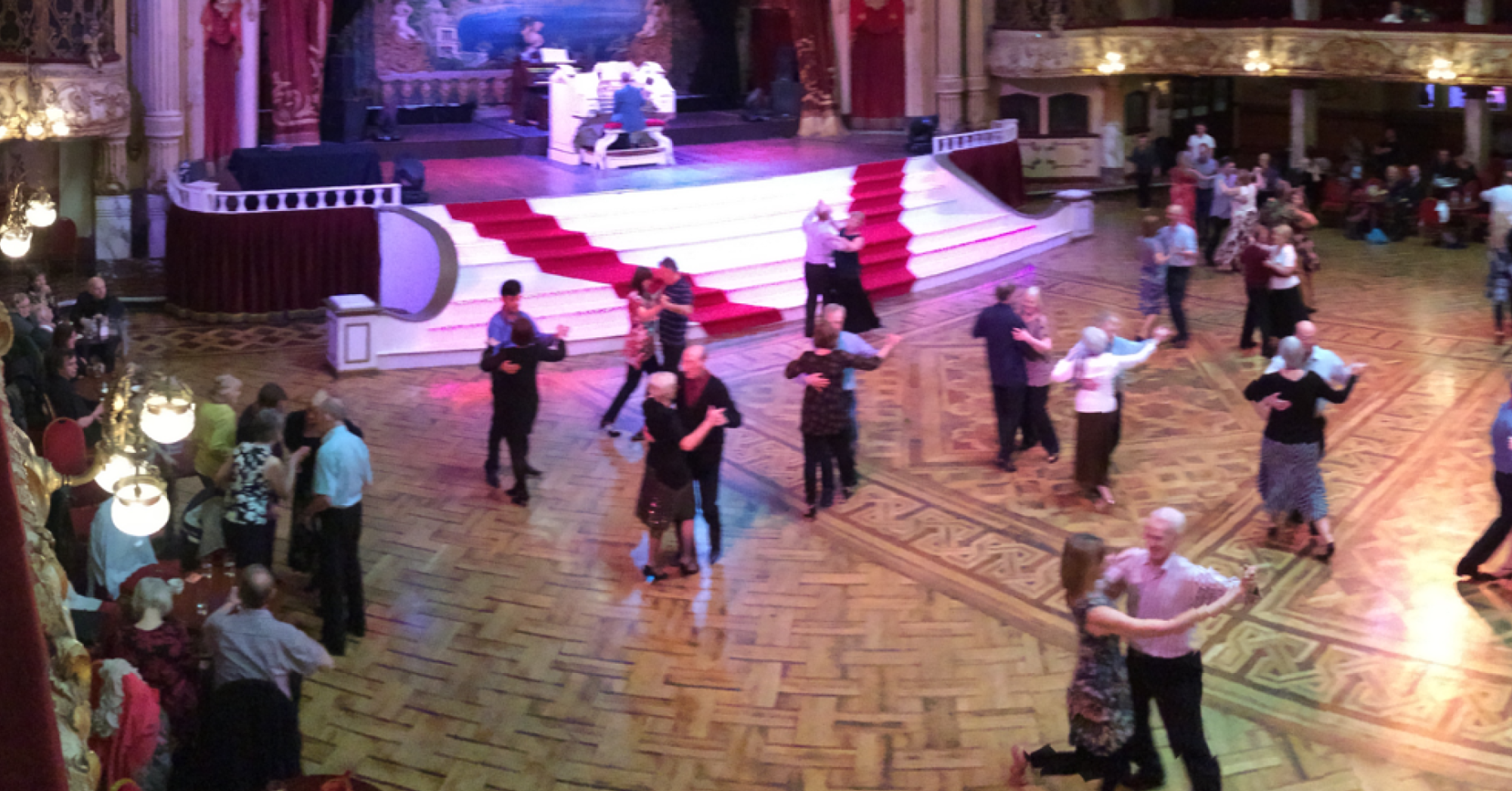Now that we’ve delved into what draws the ladies to the dance floor, it’s our dancing gents turn! In Western culture, male dancers tend to begin dance with nervousness at best, and shame at liking such a ‘sissy’ activity at worst. Yet, men stand to gain just as much from ballroom dance as their lady-friends. Let’s look at what men really want from ballroom dancing, and what keeps them coming back.
Continue reading “What Men REALLY Want (On the Dance Floor)”
Now that we’ve a general idea of how to get the most from your dance practice, let’s look at three common issues all dancers face and how to resolve them by asking questions and experimenting.
To improve your dancing without an instructor, you must be patient and observant of what feels comfortable, balanced, and smooth… and what does not.
Continue reading “How to Improve Your Dancing Without Help, Part 2”
Wrapping up our theme on getting more dances and dance partners when social dancing, it’s time to take a look at what actually happens during the dance itself. If you score an awesome dance partner, you’ll want to get more dances from your new friend, right? Then here’s the secret:
make sure they have as much fun as you do.
Turns are a huge part of any dance, and spot turns are probably the most common of the lot. So it’s amazing how few dancers know how to do it properly. As I’m sure you know, a poorly executed turn can lead to wrenched arms, loss of balance, or even a nasty fall. Here then, is a quick look at the basics for leading and following a smooth and comfortable spot turn.
Partner dancing is like going to a school where you have to take all the same classes, and your average score at the end determines whether you graduate. What if you had different interests? What if one of you learns faster than the other? Figuring out how to work together is the heart of partner dancing – the benefit of which, is that you will have new teamwork skills and a new romantic activity to bring you closer together. Here’s how to lay the foundation for fun and enjoyable partner dance lessons.
In the last article, we tackled the psychological reasons why ‘following’ in a ballroom dance may not be as bad as we think it is. Now, we look at specific techniques that help us connect and respond to our leader. Then we will finish off with a learning strategy to polish these techniques with minimal frustration.
Continue reading “Leading VS Following – Part Two”
‘I’m the leader, you’re the follower.’ Does that sentence make you want to grind your teeth? You’re not alone. Many people hate having to ‘surrender’ to another person to make the dance work. What they usually don’t realize is that the ‘follower’ has a power of her own. The big moves might be mostly up to the leader, but the follower adds the embellishments that make up much of the dance’s personality.
In this article, we’ll change the way we look at ‘leaders’ and ‘followers’ on the ballroom dance floor. And find out the playing field is a lot more level than most people realize. Let’s start by looking at how the definitions have changed over the years.
Continue reading “Leading VS Following – Part One”
So, when was the last time you hit the dance floor and danced flawlessly, with no confusion from either side on what was going to happen next. Been awhile, hasn’t it? For most of us, whether we are guiding the action, or responding to it, odds are our dance connection could use a little tweaking.
And if you feel like your partner ‘just doesn’t get you’ no matter what you do, it helps to remember that dance connection is a two-way street. You may be the best in the world at connecting with your partner, and it won’t be enough – he or she needs to connect back. But the least we can do is make sure we can hold up our end of the deal.
Continue reading “Finding that Ballroom Dance Connection”
